Focus on ensuring network security and personal data
Speaking at the discussion in the Group, National Assembly Deputy Nguyen Thi Lan highly appreciated the efforts, sense of responsibility and innovation of the drafting agency in the process of building the Draft Law on E-commerce. According to the delegate, this draft was carefully prepared, has a reasonable structure, comprehensive content, and accurately reflects the rapid development of e-commerce activities domestically and internationally.
The draft Law has many new points, in line with the digital transformation trend, expanding the scope of regulation to social networks, livestream sales and multi-service integration platforms; clearly defining the responsibilities of participating entities; supplementing management mechanisms for foreign organizations and individuals...
"Notably, the Draft has focused on the contents of green e-commerce, consumer protection, network security and personal data, and strengthening the role of state management. This is an important step towards a transparent, modern and safe legal environment for e-commerce in Vietnam," National Assembly Deputy Nguyen Thi Lan emphasized.

Giving specific comments, National Assembly Deputy Nguyen Thi Lan said that Article 7 of State management of e-commerce has relatively complete provisions on state management of e-commerce, including policy making, monitoring of activities, application of science and technology and human resource development. However, current regulations only stop at the level of listing tasks, not clarifying the principles of coordination and linkage mechanisms between state management agencies; especially in connecting and sharing data to serve the management of e-commerce activities.
In practice, e-commerce is highly inter-sectoral, involving the fields of tax, customs, finance, cyber security and personal data protection. If there is a lack of a unified coordination mechanism, each agency will implement it separately, which will easily lead to overlaps, making it difficult to control cross-border transactions and reducing management efficiency. Therefore, delegates and the Drafting Committee need to study and supplement Article 7 with principles on establishing a coordination mechanism, connecting and sharing data between the Ministry of Industry and Trade and relevant ministries and branches, ensuring safety, synchronization and unity in state management of e-commerce. Detailed contents such as connection methods, technical standards, information security and assignment of specific responsibilities are technical and require flexibility in implementation. Therefore, the Government should stipulate them in a guiding Decree to ensure feasibility and bring the Law into life soon.
Human resource development for e-commerce
Regarding the development of human resources for e-commerce in Article 38, the delegate said that the draft Law has stated the policy of developing human resources through training at educational institutions, encouraging online learning and giving priority to disadvantaged areas. This is the right direction, demonstrating the State's interest in human resources serving the digital economy . However, the current regulations only stop at the general direction, there is no specific mechanism to connect schools, businesses and state management agencies, nor has it determined a framework of professional skills standards in the field of e-commerce. This makes training programs easily disjointed, lacking practical application and failing to keep up with the needs of the labor market.
"It is recommended to add regulations on the "National e-commerce skills standards framework", while encouraging training cooperation models with businesses, allowing students to intern and participate in real projects at e-commerce platforms", National Assembly delegate Nguyen Thi Lan proposed.

Commenting on Article 39 of the Special Support Policy for E-commerce Development, delegates said that the Draft Law clearly shows the policy of supporting disadvantaged groups such as business households, cooperatives, small businesses, women entrepreneurs and remote areas to participate in e-commerce. This is the right direction, contributing to narrowing the digital gap and promoting local economic development. However, the current regulations only stop at general orientation, do not clearly state the implementation mechanism, criteria for evaluating effectiveness and lack specific policies for the fields of agriculture, clean food and local products... These are fields with great potential but still face many barriers in logistics, standards and consumer confidence.
Therefore, delegates proposed adding separate support policies for e-commerce in agriculture and regional products, focusing on digital skills training for cooperatives and farming households; supporting electronic traceability stamps, cold logistics, sustainable packaging; and establishing a set of performance assessment indicators (KPIs) to monitor support results.
According to international experience, many countries have been successful in linking agricultural support policies with e-commerce. Typically, China has implemented the Taobao Villages program, helping millions of farmers sell agricultural products online, with support in training, logistics and product standards; Thailand has developed the ThaiFarmersMarket platform for farmers to sell directly to urban consumers; South Korea has the Smart Farm to Table program, integrating traceability and fast delivery from the farm... The common point of these models is that the State plays the role of infrastructure and connection, while businesses take on operations and consumption, thereby ensuring efficiency and avoiding formalities.
From the above lessons, National Assembly Deputy Nguyen Thi Lan said that Vietnam should apply the mechanism of "State creates foundation - Enterprises lead - People participate", in which the State supports technology, data and infrastructure connection; e-commerce and logistics enterprises directly implement, contributing to improving the competitiveness of Vietnamese agricultural products, expanding the market and promoting digital rural development.
Enhance transparency, protect consumers
Regarding Articles 15 and 19 on Consumer Protection and Counterfeit Goods Control in E-Commerce, National Assembly Deputy Nguyen Thi Lan acknowledged that the Draft Law currently only provides general regulations on the responsibilities of platform owners (Article 15) and consumer protection (Article 19), but is not specific on the verification of seller identity, joint responsibility of the platform as well as the mechanism for complaints and automatic refunds. Meanwhile, the situation of selling counterfeit goods, fraud and violating consumer rights on e-commerce platforms is increasing, causing loss of trust and affecting the sustainable development of the market.
Therefore, the delegate proposed to add in Article 15: “The owner of the e-commerce platform is responsible for authenticating the seller’s identity using electronic identification (eKYC) before allowing operations, and is jointly responsible if the seller’s violations cannot be controlled”. And in Article 19, “The e-commerce platform must have an automatic complaint and refund mechanism, ensuring consumer rights when transactions are canceled, goods are not as described or there are signs of fraud”.
"These regulations are in line with international trends, such as the European Union (Digital Services Act 2024), Singapore and China, where platforms must verify sellers (KYBC) and take joint responsibility when violations occur. The addition of regulations will contribute to improving transparency, protecting consumers, and strengthening the trust and reputation of Vietnamese e-commerce domestically and internationally," National Assembly Deputy Nguyen Thi Lan emphasized.
Source: https://daibieunhandan.vn/cung-co-uy-tin-cua-thuong-mai-dien-tu-viet-nam-10394207.html


![[Photo] The road connecting Dong Nai with Ho Chi Minh City is still unfinished after 5 years of construction.](https://vphoto.vietnam.vn/thumb/1200x675/vietnam/resource/IMAGE/2025/11/04/1762241675985_ndo_br_dji-20251104104418-0635-d-resize-1295-jpg.webp)
![[Photo] Comrade Nguyen Duy Ngoc holds the position of Secretary of the Hanoi Party Committee](https://vphoto.vietnam.vn/thumb/1200x675/vietnam/resource/IMAGE/2025/11/04/1762234472658_a1-bnd-5518-8538-jpg.webp)
![[Photo] Ca Mau "struggling" to cope with the highest tide of the year, forecast to exceed alert level 3](https://vphoto.vietnam.vn/thumb/1200x675/vietnam/resource/IMAGE/2025/11/04/1762235371445_ndo_br_trieu-cuong-2-6486-jpg.webp)
![[Photo] Panorama of the Patriotic Emulation Congress of Nhan Dan Newspaper for the period 2025-2030](https://vphoto.vietnam.vn/thumb/1200x675/vietnam/resource/IMAGE/2025/11/04/1762252775462_ndo_br_dhthiduayeuncbaond-6125-jpg.webp)
![[Photo] Ho Chi Minh City Youth Take Action for a Cleaner Environment](https://vphoto.vietnam.vn/thumb/1200x675/vietnam/resource/IMAGE/2025/11/04/1762233574890_550816358-1108586934787014-6430522970717297480-n-1-jpg.webp)

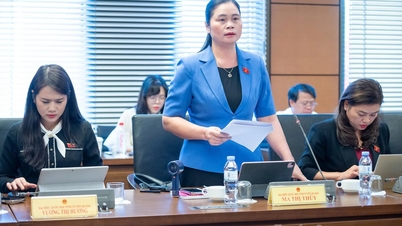


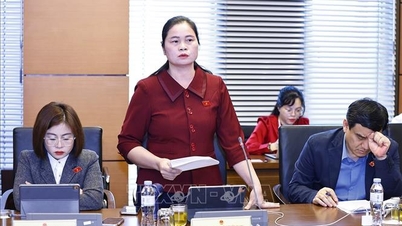




















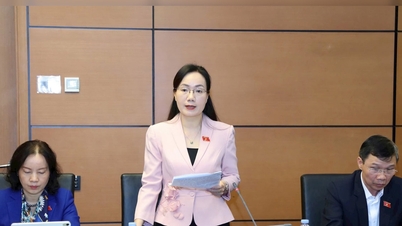


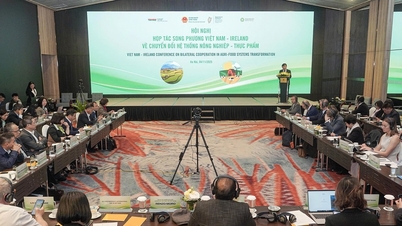

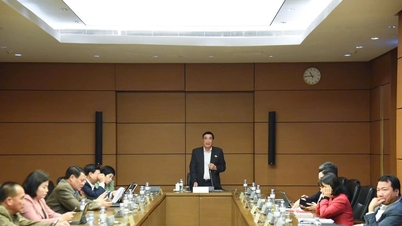


































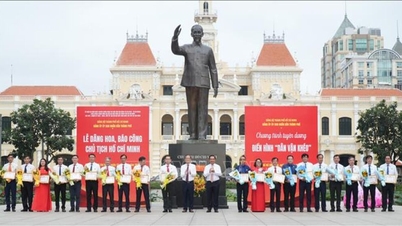










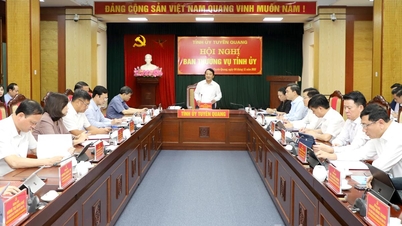





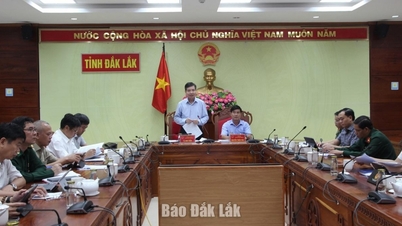
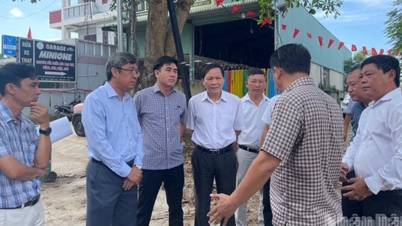
















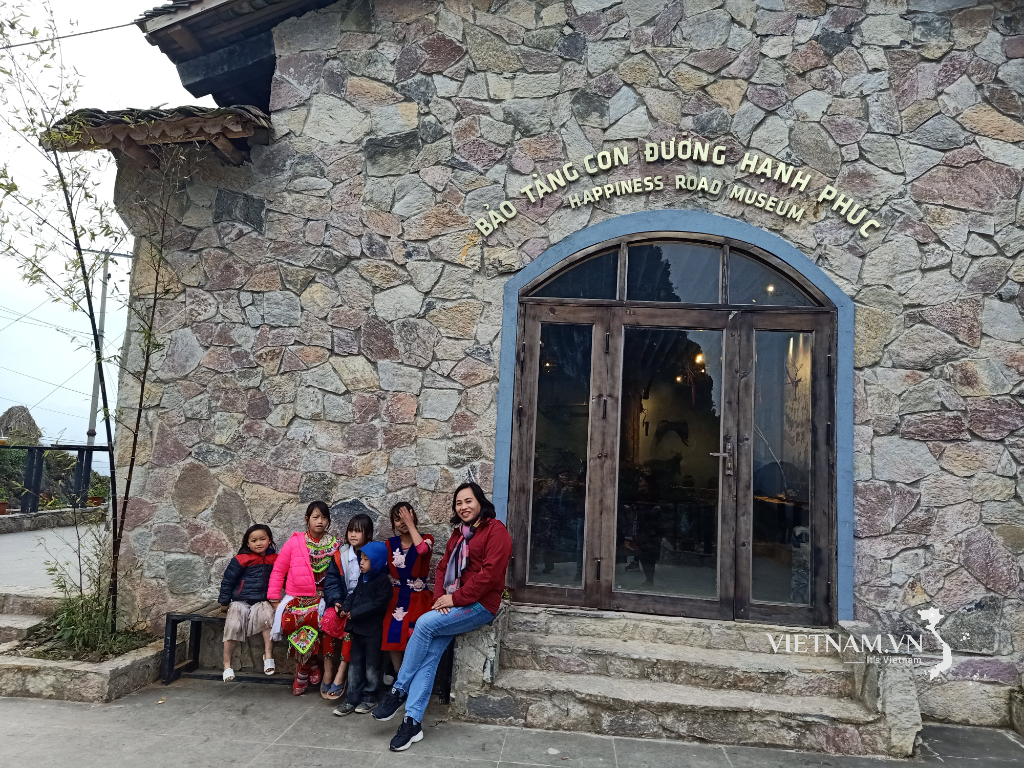
Comment (0)